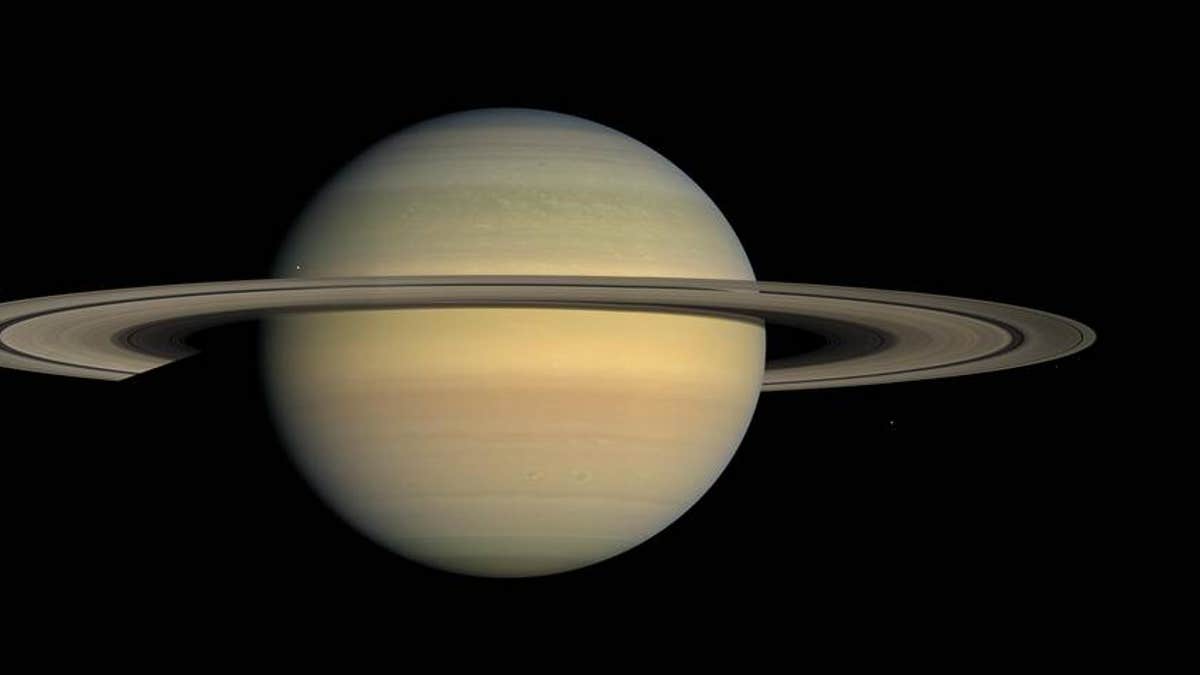
Saturn as seen by NASA's Cassini spacecraft in 2008 (Credits: NASA/JPL/Space Science Institute).
NASA has nixed reports that its Cassini spacecraft is experiencing unexplained deviations in its orbit around Saturn caused by the hypothetical Planet Nine.
“Several recent news stories have reported that a mysterious anomaly in Cassini's orbit could potentially be explained by the gravitational tug of a theorized massive new planet in our solar system, lurking far beyond the orbit of Neptune,” the space agency explained, in a statement. “While the proposed planet's existence may eventually be confirmed by other means, mission navigators have observed no unexplained deviations in the spacecraft's orbit since its arrival there in 2004.”
Related: Scientists may have just found a ninth planet and it's massive
Earlier this year Caltech scientists reported that they may have found a giant planet in our distant solar system, dubbed Planet Nine.
It is believed to have a mass about 10 times that of Earth and orbits about 20 times farther from the Sun on average than does Neptune. As a result, it would take this new planet between 10,000 and 20,000 years to make just one full orbit around the Sun.
Related: Saturn is absolutely gorgeous in this photo from NASA's Cassini probe
However, experts at NASA’s Jet Propulsion Lab in Pasadena, Calif., say that Cassini would be unaffected by such a planet. "An undiscovered planet outside the orbit of Neptune, 10 times the mass of Earth, would affect the orbit of Saturn, not Cassini," said William Folkner, a planetary scientist at JPL, in the statement. "This could produce a signature in the measurements of Cassini while in orbit about Saturn if the planet was close enough to the sun. But we do not see any unexplained signature above the level of the measurement noise in Cassini data taken from 2004 to 2016."
In a recent paper experts predicted that, if data tracking Cassini's position were available out to the year 2020, they might be used to reveal a "most probable" location for the new planet in its long orbit around the sun. NASA, however, notes that Cassini's mission is planned to end in late 2017, when the spacecraft, with its fuel supply depleted, will plunge into Saturn's atmosphere.
Related: Planet discovery fuels interest in mythical world of deep space
The Cassini-Huygens mission is a cooperative project of NASA, ESA (European Space Agency) and the Italian Space Agency.
